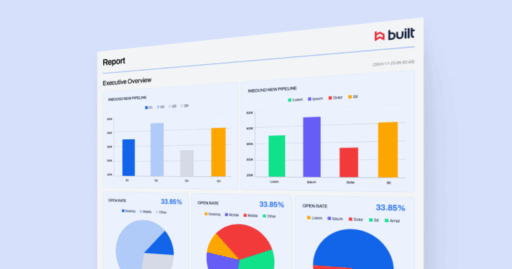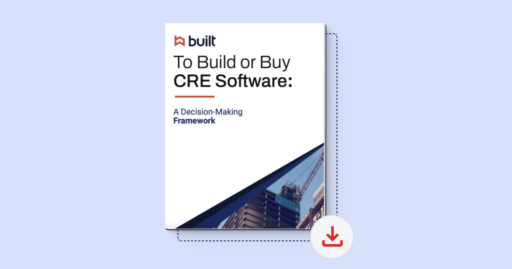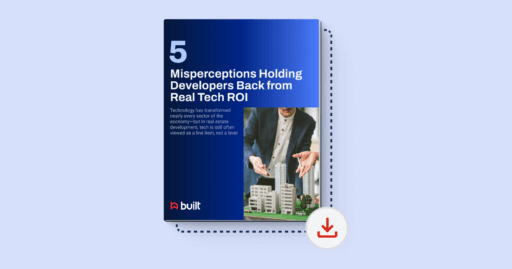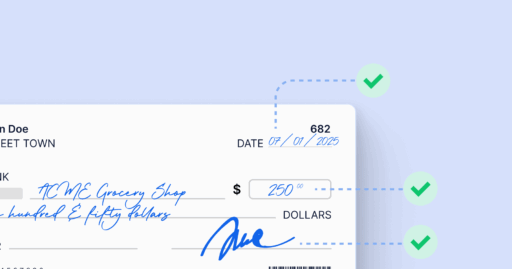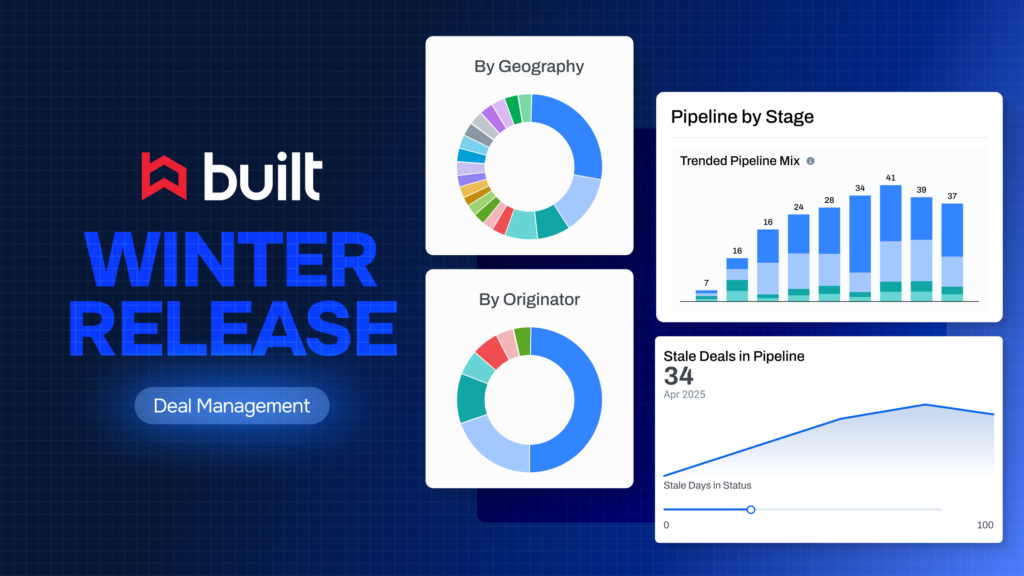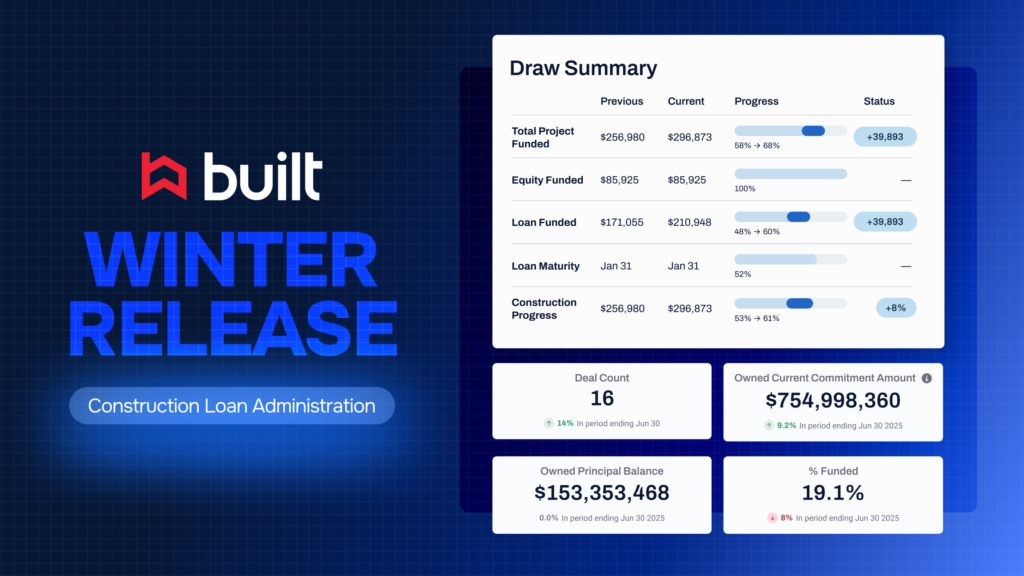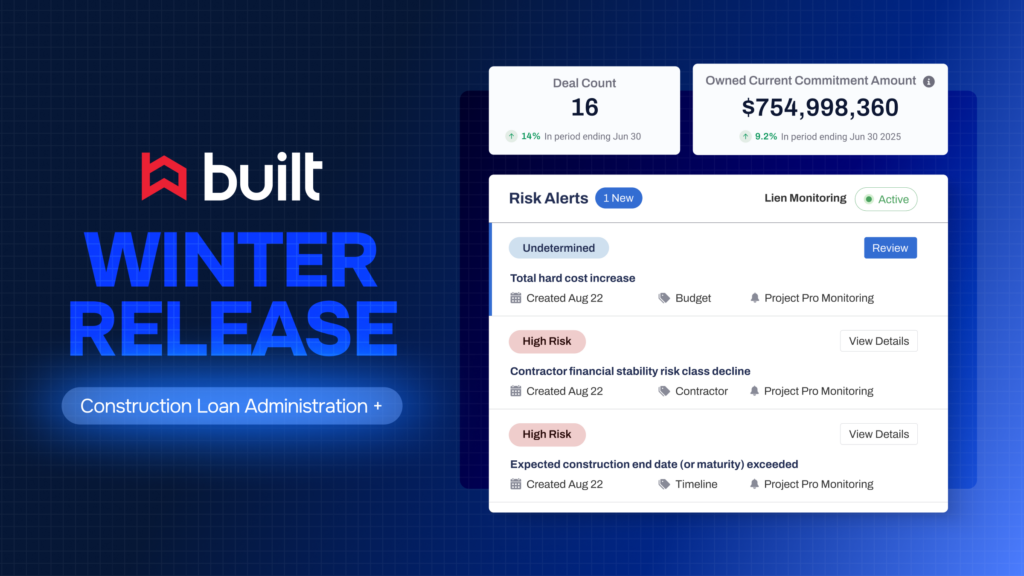
NIMBY No More: 83% of Americans Say Yes to Affordable Housing


New data upends long-standing assumptions about public resistance to local development
Built urges modernization of capital infrastructure to match surging public demand for housing
NASHVILLE, Tenn. –– A new national survey commissioned by Built, the leading software platform for real estate and construction finance, reveals a striking shift in public sentiment: 83% of Americans say they support affordable housing being built in their own neighborhoods. This landmark finding challenges—and effectively dismantles—decades of assumptions tied to the “Not In My Backyard” or NIMBY mindset. For years, it was widely believed that while people may endorse affordable housing in principle, they oppose it when proposed nearby. That perception no longer holds. Americans overwhelmingly want more housing options in their own communities.
“Affordability challenges have gone mainstream,” said Chase Gilbert, CEO of Built. “More people are realizing affordable housing isn’t about charity—it’s about keeping the American dream within reach. Homeownership has always been a cornerstone of that dream, and for too many, that path is getting harder to find.”
Why Now Matters
The U.S. faces a shortfall of 7.1 million affordable and available rental homes. Americans now spend an average of 42% of their income on housing, and over one in three parents worry their children won’t be able to afford to live in the communities where they were raised. he survey also revealed that the term “affordable housing” carries a stronger favorable impression than other housing types such as townhomes (61%), apartments (58%), or mobile homes (44%). Yet fewer than 30% of Americans could correctly define affordable housing as—housing that costs no more than 30% of a household’s income. Even with this gap in understanding, support remains incredibly high across all demographics.
Bipartisan Agreement
This consensus spans party lines. Ninety-two percent of Democrats, 83% of Independents, and 74% of Republicans say they would support affordable housing projects in their own neighborhoods.
This alignment is already fueling legislative action. Several bills now before Congress seek to remove longstanding barriers to housing development and access. The Community Investment & Prosperity Act would raise the federal cap on public welfare investments, freeing more private capital to put towards affordable housing projects. The ROAD to Housing Act is designed to simplify and strengthen coordination among federal agencies, streamlining the development process across jurisdictions. Meanwhile, the Housing Affordability Act would expand aid programs, eliminate restrictive eligibility requirements, and provide critical support to veterans and first-time homebuyers.
Still, as Built’s survey and industry experience make clear, policy alone isn’t enough.
“Policy decisions are definitely a part of the equation, but there’s more to it than that,” explained Gilbert. “Even if funding for new buildings is unlocked, it must flow into real projects for construction to begin. Capital that doesn’t move is no different than capital that was never there.”
With strong public support and legislative momentum, the opportunity to close the housing gap has never been greater. Built’s data and platform are helping policymakers, developers, and financiers turn that consensus into real, on-the-ground progress.
For more information on Built’s affordable housing solutions, please click here.
Infographic
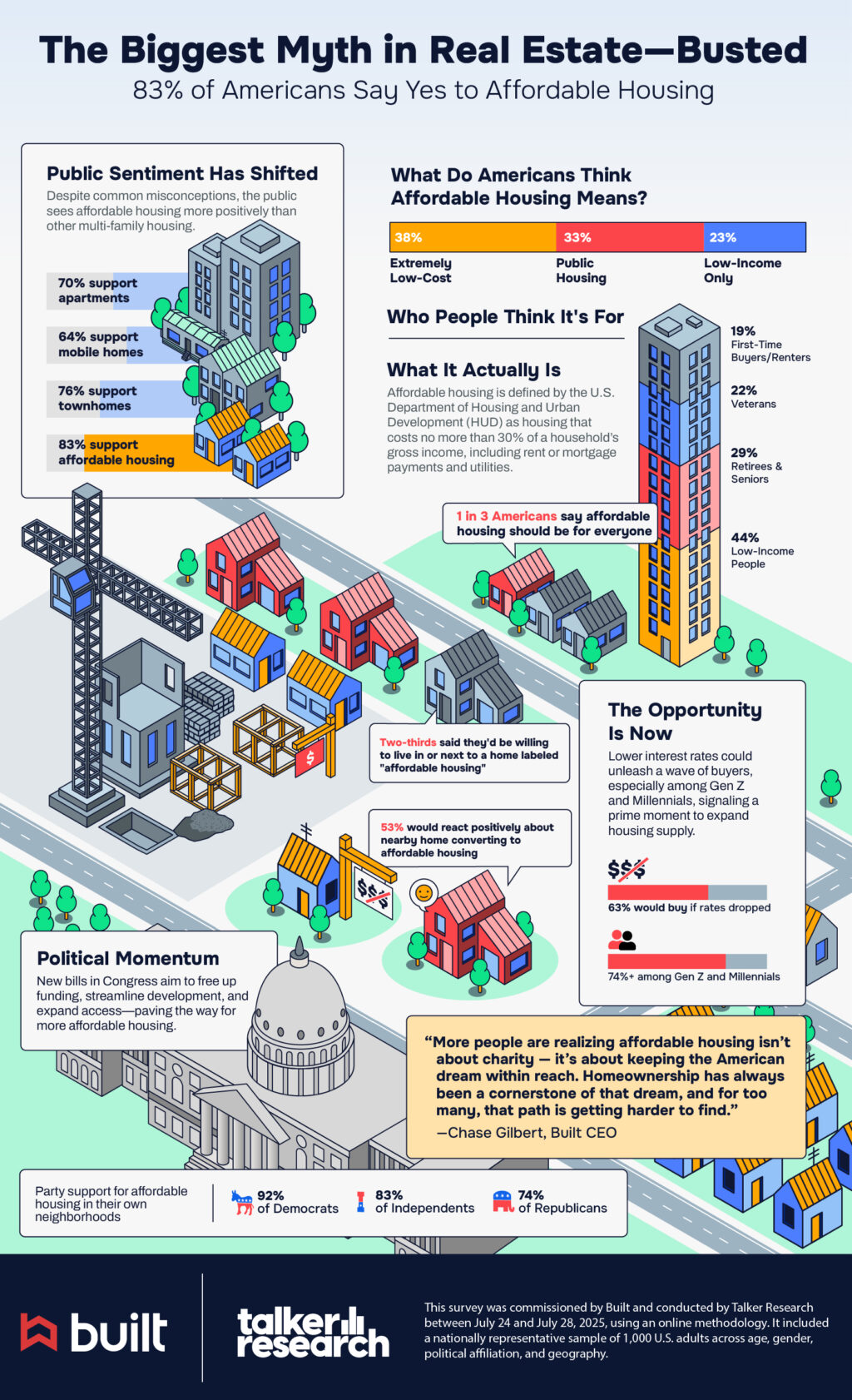
Survey Methodology
This survey was commissioned by Built and conducted by Talker Research between July 24 and July 28, 2025, using an online methodology. It included a nationally representative sample of 1,000 U.S. adults across age, gender, political affiliation, and geography.
Media Contact
[email protected]
